-
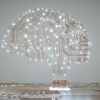 +23 +6
+23 +6An AI System Spontaneously Develops Baby-Like Ability to Gauge Big and Small
Training software that emulates brain networks to identify dog breeds or sports equipment is by now old news. But getting such an AI network to learn a process on its own that is innate to early child development is truly novel. In a paper published Wednesday in Science Advances, a neural network distinguished between different quantities of things, even though it was never taught what a number is.
-
 +20 +6
+20 +6Apple blames Intel for poor Mac sales – so why doesn’t it just buy AMD?
Apple doesn’t like losing, so when it announced its latest financial results (for the fiscal second quarter, running up to the end of March), the fact that it had to admit that revenue for its Mac business declined by 5%, must have stung. However, Apple was keen to pin the decline on the fact that it “faced some processor constraints in the March quarter,” and that “Mac revenue would have been up compared to last year without those constraints”
-
 +38 +5
+38 +5All Chromebooks launched this year will be Linux-ready
Last year, Google brought Linux support to Chromebooks. It's a really nifty feature, and it's only been improving since I/O 2018. But this year, Google announced that all Chromebooks launched in 2019 will be Linux-ready right out of the box, which is great for developers, enthusiasts, and newbies alike. These announcements have been quick and brief, but at least this news is straight to the point, though every Chromebook I've tested recently had Linux support. As someone who regularly distro hops on my personal machines, the Linux installation process on Chrome OS is top-notch for ease of use, I must say.
-
 +27 +4
+27 +4The Case Against Quantum Computing
The proposed strategy relies on manipulating with high precision an unimaginably huge number of variables. By Mikhail Dyakonov. (Nov. 15, 2018)
-
 +22 +3
+22 +3AMD to launch new 7nm Navi GPU, Rome CPU in 3rd quarter
In its earnings call, AMD offered a little more detail about the launch of its next-generation processors, built using the Zen 2 architecture and TSMC's 7nm manufacturing process, and new GPU architecture, Navi, again built on 7nm. Server-oriented EPYC-branded chips (codenamed Rome) should be shipping to customers in the third quarter of this year, and so too will Navi-based video cards.
-
 +13 +2
+13 +2Infants shouldn’t be exposed to electronic screens, new guidelines say
The WHO drew on emerging - but as yet unsettled - science about the risks screens pose to the development of young minds at a time when surveys show children are spending increasing amounts of time watching smartphones and other mobile devices.
-
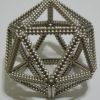 +29 +2
+29 +2Quantum breakthrough could lead to 'super-powered' hard disk drives
While the world’s focused on the latest Avenger’s flick, an international team of scientists have potentially unlocked the super powers of another familiar Marvel character: Magneto. Researchers from the Argonne National Laboratory, Oakland University in Michigan, and Fudan University in China have discovered a quantum-level exploit that has the potential to give engineers greater control over the magnetic properties of certain metals.
-
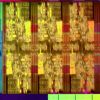 +4 +2
+4 +2Intel puts 8 cores, 16 threads, and a 5GHz turbo option in a laptop processor
The first processors to include Intel's ninth-generation Core branding came out last year with a limited line-up: just a handful of high-end desktop processors in the Coffee Lake family. Today, the company has unveiled a bumper crop of new ninth-gen chips. There's a set of H-series processors for laptops and a complete range of desktop processors across the Celeron, Pentium, and Core brands, from i3 all the way to i9.
-
 +10 +4
+10 +4Meet Your iPhone’s Grandparent
How the calculator morphed into the pocket computer—the predecessor of today’s smartphones
-
 +12 +1
+12 +1CCP Games: EVE Online's tech is "absolutely at its breaking edge"
The allure of EVE Online has never been found in its style or sheen or thrilling gameplay. Ask CCP Games CEO Hilmar Petursson what keeps the 16 year-old MMO going, and he will only ever give you one answer: the community. In an interview with GamesIndustry.biz at Reboot Develop earlier this month, Petursson attempted to communicate the experience of making and maintaining EVE Online to running a city.
-
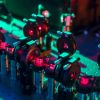 +23 +4
+23 +4This Quantum Computer Can See the Future — All 16 of Them
When Mile Gu boots up his new computer, he can see the future. At least, 16 possible versions of it — all at the same time. Gu, an assistant professor of physics at Nanyang Technological University in Singapore, works in quantum computing. This branch of science uses the weird laws that govern the universe's smallest particles to help computers calculate more efficiently.
-
 +20 +1
+20 +1Microsoft Has Announced We Can Finally Remove USBs Without Ejecting Them
After years of chastising us for failing to safely eject USB drives from computers, Microsoft has done the unthinkable: finally acknowledging it's okay to yank that sucker out and live your best life.
-
 +14 +1
+14 +1Predict The Future: Ηas already been achieved using computers (2019)
“Prophet” computers use quantum computing, overcome traditional computer barriers that use a binary computing system. The team of scientists from Griffith University, Australia and Nanyang Technological University (NTU), Singapore has developed a quantum machine that accurately simulates future results. This research is of great significance at the time of quantum mechanics and machine learning (artificial intelligence) as they are now interfering.
-
 +14 +1
+14 +1OpenAI Five defeats professional Dota 2 team, twice
OpenAI, a San Francisco-based nonprofit AI research organization backed by tech luminaries Reid Hoffman and Peter Thiel, has investigated autonomous systems that can achieve superhuman performance in Pong and Montezuma’s Revenge — not to mention natural language systems capable of impressive coherency. But it’s also spent the better part of four years developing AI capable of human-level play in Valve’s Dota 2 battle arena game, and it today set the fruit of its labor loose on a team of professional players.
-
 +12 +2
+12 +2Researchers Simulated Religious Groups With AI to Try to Understand Religious Violence
Religious violence is as old as religion itself, but the dynamics that lead to clashes between religious groups are remarkably complex. To get a better grasp on this problem, an international team of researchers turned to simulations that use “psychologically realistic” artificial intelligences to model conflicts between religious groups.
-
 +30 +8
+30 +8We've found a quicker way to multiply really big numbers
To multiply two numbers by hand take a few steps but it's something we're taught in school. When dealing with big numbers, really big numbers, we need to a quicker way to do things.
-
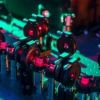 +26 +2
+26 +2Scientists build a machine to generate quantum superposition of possible futures
In the 2018 movie Avengers: Infinity War, a scene featured Dr. Strange looking into 14 million possible futures to search for a single timeline in which the heroes would be victorious. Perhaps he would have had an easier time with help from a quantum computer. A team of researchers from Nanyang Technological University, Singapore (NTU Singapore) and Griffith University in Australia have constructed a prototype quantum device that can generate all possible futures in a simultaneous quantum superposition.
-
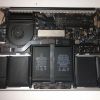 +19 +2
+19 +2How to improve MacBook Pro Performance and Thermals
I have a Early 2015 MacBook Pro , bought it when I joined engineering It’s a thing of beauty and I love it. Which started to get a bit warmer (may be because Global Warming) when Idle and was reaching high temperature with medium load usually Chrome with few tabs, Spotify, VS Code, Terminal etc. If I said that I could perhaps fry an egg on its surface at times, I don’t think I would be too far from the truth.
-
 +28 +8
+28 +8How IBM Watson Overpromised and Underdelivered on AI Health Care
In 2014, IBM opened swanky new headquarters for its artificial intelligence division, known as IBM Watson. Inside the glassy tower in lower Manhattan, IBMers can bring prospective clients and visiting journalists into the “immersion room,” which resembles a miniature planetarium. There, in the darkened space, visitors sit on swiveling stools while fancy graphics flash around the curved screens covering the walls. It’s the closest you can get, IBMers sometimes say, to being inside Watson’s electronic brain.
-
 +24 +5
+24 +5The next AI explosion will be defined by the chips we build for it
Hardware design, rather than algorithms, will help us achieve the next big breakthrough in AI. That’s according to Bill Dally, Nvidia’s chief scientist, who took the stage Tuesday at EmTech Digital, MIT Technology Review’s AI conference. “Our current revolution in deep learning has been enabled by hardware,” he said.
Submit a link
Start a discussion




















